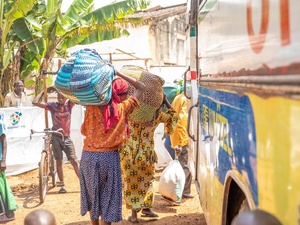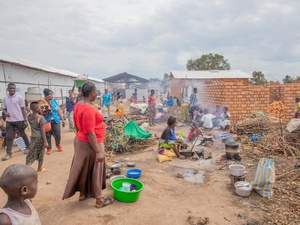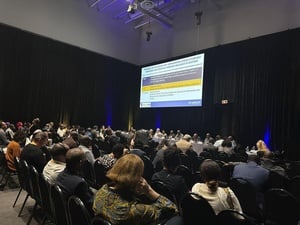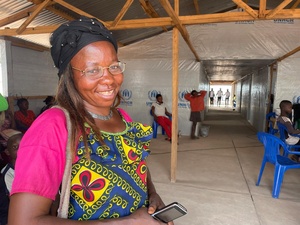Angolan refugees: willing to return
Angolan refugees: willing to return
UNHCR estimates that more than 200,000 Angolan refugees living Zambia and the Democratic Republic of Congo are willing to return to Angola this year. A survey carried out in Zambia last week indicates that up to 60 percent of an estimated 210,000 Angolan refugees living in Zambia are willing to go home in 2003. The survey covered more than 14,000 families (representing over 50,000 individuals) in four refugee camps in Zambia.
In the Democratic Republic of Congo, which hosts 192,000 Angolan refugees, informal estimates from the Bas - Congo, one of the main refugee - hosting areas bordering northern Angola, indicate that up to 90 percent of Angolan refugees there are interested in returning this year.
The results of the Zambia survey differed sharply from camp to camp. In Meheba, north-western Zambia, 63 percent said they would like to repatriate this year, while in Nangweshi, in the south-west, only 13 percent expressed a desire to do so. The reason for the discrepancy is that most of the Angolan refugees in Nangweshi originate from former UNITA - controlled zones in Angola's Moxico province, which they consider more volatile. The survey also covered Ukwimi refugee camp, which houses about 2,000 demobilised former UNITA combatants. Ninety percent of them want to go back.
UNHCR is racing against the clock to get everything ready for the return movement, which is expected to start in May or June. Eventually, nearly half a million Angolans driven from their country by 27 years of civil war could go back. UNHCR has stockpiled relief items in Lusaka, Zambia, in preparation for the imminent repatriation. These include 68,000 blankets, 34,000 kitchen sets and 68,000 jerry cans, as well as soap and 40,000 construction tool kits. More items are being purchased this week, including 40 medical kits, 43,000 sleeping mats, sanitary material and communications equipment for 50,000 families.
In Zambia, NGOs working with UNHCR have started looking at transportation, while DRC's Bas - Congo region will soon organise a go - and - see visit for refugee representatives. UNHCR in Angola warns that more information activities, de - mining and mine - awareness training are necessary before the repatriation can start in earnest. The road conditions will also constitute a significant obstacle.
More than 90,000 Angolans have returned home spontaneously, following a cease - fire agreement signed in April 2002. The number of spontaneous returns is now said to have dwindled in some of the provinces with the beginning of the rainy season and the news of an imminent UNHCR repatriation effort. UNHCR launched an appeal last year for $34.5 million to pay for repatriation and reintegration of Angolan refugees until the end of 2004. So far only $6.5 million has been received.









